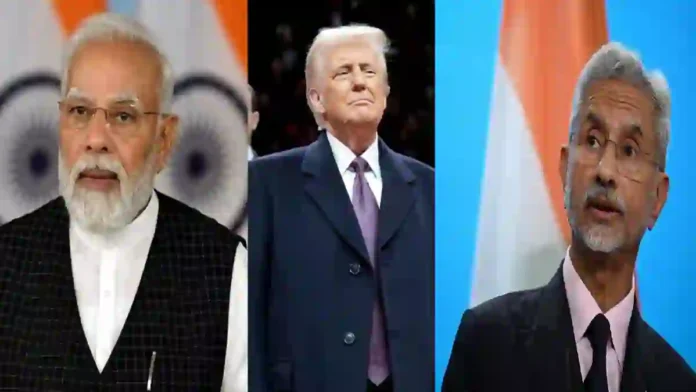Prime Minister Narendra Modi will not attend the upcoming United Nations General Assembly (UNGA) high-level session in New York and will skip addressing the General Debate, with External Affairs Minister S Jaishankar likely to represent India this year. According to the revised provisional list of speakers issued by the UN, India will be represented by a minister, and Jaishankar is scheduled to address the session on September 27. This marks a shift from the earlier provisional speaker list circulated in July, which had scheduled Prime Minister Modi to deliver India’s address on September 26.
The 80th session of the UN General Assembly formally opens on September 9, with the high-level General Debate running from September 23 to 29.
Read- Mallya-Modi to return to India! UK Team Assesses Tihar Jail
As per established tradition, Brazil will open the debate, followed by the United States, whose President, Donald Trump, will make his first address to the Assembly in his second term on September 23.
Several other major leaders, including the heads of government of Israel, China, Pakistan, and Bangladesh, are slated to address the General Debate on September 26.
The absence of Prime Minister Modi at this session comes against the backdrop of evolving geopolitical tensions and new stresses in India-US relations.
Modi had travelled to the United States earlier this year in February for bilateral talks with Trump at the White House, but relations have been tested by Washington’s decision to impose tariffs totalling 50 percent on Indian goods, including a punitive 25 percent duty on India’s purchases of Russian oil.
His decision to skip the UNGA podium also contrasts with India’s high-profile engagements in multilateral forums and may reflect a combination of scheduling pressures, diplomatic calculations, and a shift in New Delhi’s approach to UN visibility this year, leaving Jaishankar to articulate India’s foreign policy positions.
The 80th UNGA session is expected to be a particularly intensive diplomatic gathering, with the theme “Better together: 80 years and more for peace, development and human rights.” The session coincides with simultaneous global crises, notably the ongoing Israel-Hamas conflict and the continuing war in Ukraine, both of which are expected to dominate discussions and create sharp divisions among member states.
Read- ‘Will Undoubtedly Buy;: Nirmala Sitharaman Says Russian Oil Suits India’s Needs
Read- India’s Next Indigenous Aircraft Carrier Likely To Be Nuclear Powered
The week will formally open on September 22 with a commemorative meeting marking the 80th anniversary of the United Nations itself. Additionally, September 2025 marks 30 years since the landmark Fourth World Conference on Women in Beijing, prompting a dedicated high-level meeting under the theme “Recommitting to, resourcing and accelerating the implementation of the Beijing Declaration and Platform for Action.”
The discussions will evaluate a global track record over three decades in the pursuit of gender equality, highlighting achievements, gaps, persisting challenges, and the best practices that have emerged.
UN Secretary-General António Guterres has also convened a Climate Summit on September 24, intended as a platform for states to present updated and ambitious national climate action plans while unlocking opportunities in the clean energy transition.
This comes as renewed urgency grips international climate diplomacy, with growing emphasis on adaptation, finance, and equitable pathways for the developing world.
Beyond climate issues, the high-level week will feature several thematic summits and meetings shaping the global policy agenda, including a Summit for a Sustainable, Inclusive and Resilient Global Economy and dedicated discussions on Non-communicable Diseases, Mental Health and Well-being.
Other important commemorations include the 30th Anniversary of the World Program of Action for Youth, the launch of a Global Dialogue on AI Governance at the UN level, and observances such as the International Day for the Total Elimination of Nuclear Weapons.
Deliberations on sensitive crises will also feature prominently, with a special meeting on the “Situation of Rohingya Muslims and other minorities in Myanmar,” underscoring the humanitarian challenges facing the international community.
Collectively, the wide-ranging agenda reinforces why the high-level UN week is considered the busiest diplomatic season annually, with dozens of global leaders converging at the UN Headquarters in New York to present their national priorities, engage in side meetings, and attempt to shape outcomes on issues ranging from peace and security to sustainable development.
Although changes in the speaker list remain possible until the last moment, the current line-up underlines both the pressure points of the international order and the competing ambitions of member states.
Against this backdrop, India’s presence through Jaishankar will allow New Delhi to maintain continuity on critical policy positions, although Modi’s absence will be notable given the weight usually attached to prime ministerial-level addresses from the UNGA podium.
Based On A PTI Report
Agency




